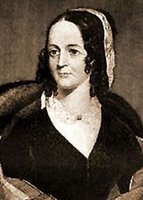Last night Temple Grandin spoke at the College of Charleston, a free public lecture sponsored by the
REACH Program. And the night before, I got to have dinner with her!
Dr. Grandin is a person who's so famous now that I don't feel the need to introduce her at all. In fact, one of the really interesting things we learned at dinner was how she responds to that fame. She said she feels it as a tremendous responsibility. She said that she didn't want to let it get to her head, and she made reference to Greg Mortenson and General Patraeus as people who'd made that mistake.
"The thing with those two," I said, "is that everybody didn't respond by saying, 'Oh, white men. We knew it. We knew that they weren't capable of achieving anything, and they've proved it.'"
She agreed. As a person with autism, people are looking to her as an example. She said that she has to be careful how she behaves. "I can't ever get angry in public," she told us. She's a
huge advocate for appropriate, polite behavior from all kids and people, and she was especially emphatic about how important this is for kids with intellectual disabilities. "Teach them to say please and thank you," she said. "Teach them to shake hands and say 'Nice to meet you.' Teach them to take turns."
Biffle and I have been talking about this with Maybelle. I'm really quite comfortable with her being a naked, syrup-covered person who stands on the dining room table turning the light on and off, but we recognize that she's got to learn what the outside world's expectations are for behavior (and, in fact, she's doing pretty well with this). While our household can be a place where she's experimental and boundary-testing, appropriate behavior is going to make things easier for her in the rest of the world. People are already going to have low expectations for her. She'll already have challenges. If she is incredibly polite, she'll immediately challenge people's assumptions.
I have mixed feelings about this, though. This is due in part to my upbringing, which was replicated in our visit to my parents over Thanksgiving. Pretty much the only rule for Maybelle in my parents' house was that if my parents' feet were cold, Maybelle had to wear slippers. That's it. My parents taught me that "rules" and "appropriate behavior" were quite pliable, not to mention socially constructed. I remember my dad joking at the dinner table that probably my brothers and I would consistently be eating with silverware by the time we went to college.
Okay, but back to Temple Grandin. She characterized herself as a "bottom up" thinker, and she was skeptical of all labels. "I don't care about the label," she told some of the parents who came up to ask questions after her talk. "Just tell me about your child. I need to know more details before I can give you my opinion." And in general her advice was that they should try different things. If their child is improving--doing better with reading, or communicating, or math, or art--then they're doing great, and keep doing it.
She was also a huge advocate of supporting each child's strengths. If a kid is terrible at reading but great at math, then let that kid keep doing better and better with math. "But don't push it on them," she said. "Learning is supposed to be fun."
I also appreciated how she characterized herself. She's a person who does
a lot of talks about autism (she told us at dinner that about 90% of her time is spent on the road), but first and foremost she describes herself as a professor at Colorado State University, someone who specializes in livestock management. And she's also a person with autism. "Autism doesn't define me," she said.
I really enjoyed her talk, and I was honored to meet her. I didn't necessarily agree with everything she said, though. Even though Women's and Gender Studies was one of the cosponsors of her talk, she expressed intense skepticism about WGS to the WGS students who took her to breakfast yesterday. "You've got to be able to
do things and get a job," she told them. I didn't get to give her my "what you can do with a degree in WGS" spiel, but if I meet her again, I will.









